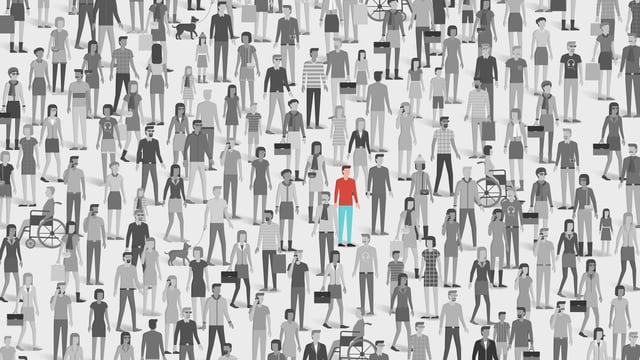
I'm an introvert. This statement surprises people who confuse introversion with shyness. An introvert is someone who needs time alone to think and recharge because they are emotionally drained by over-stimulation. A shy person tends not to like new situations and is concerned about making a social misstep.
I am not shy. I grew up in a large family; if I didn't stand up for myself, I'd be trampled on. I learned to fake behaviors that came naturally to my extroverted siblings – smile, speak with animation (even if it's forced), ask questions, and avoid the burning desire to stare into space when asked a question.
The compulsion to "fit in" permeated my corporate working life. I play acted being someone I wasn't. I came home from work mentally and physically exhausted and wanted to be left alone. I no longer had the luxury of four hours of silent, reflective time I needed after intense social interaction. Instead, I developed bleeding ulcers.
Why Is Work so Stressful?
When a company I was with moved into a new building with an open-office arrangement, I felt like I was working in a battlefield. Phones, conversations, office equipment – each added sound increased my discomfort. I am so bothered by over-stimulation that I cannot look at most people's computer screens – the icons make me nauseated.
Instead of increasing productivity and allowing greater collaboration, the new arrangement made me resent my colleagues and their interruptions. When I desperately needed silence, I'd take my papers to the ante-room of the rest room and work on the floor.
In desperation, I became the first telecommuter. Not officially; policies like that didn’t exist in the 1980s. But any time I had a major project that required tons of data that I needed to sort through and analyze in countless ways, I'd get permission to work from home for a week. I was told this was a kiss of death for my career because I would be missing vital meetings and "out of sight and out of mind".
The reality was the opposite. I was much more productive – I could synthesize more data, do better research and write more coherently without the constant battle against over-stimulation. My not being at a meeting wasn't that noticeable since I seldom spoke.
It would have been great if I could have worked from home all the time; however, I become adept at defining more work as better done from home.
To this day I prefer to work in a quiet and isolated environment. I get my best ideas when I'm exercising alone.
Brainstorming – Living Hell
Like most companies, the one I was with bought into the hype that brainstorming led to better ideas. These sessions are painful for introverts who need time to think through the question thoroughly and work through the consequences of a recommendation before we speak up. By then, the group has moved on to another question.
Here's me in a typical such session: My stomach clenches as each person speaks more loudly to be heard over the shrill voices of everyone else. Bad ideas and even worse ones get spouted because people lose sight of the initial question. I look around the table and see a bunch of baby chicks chirping at the mother to give them the next piece of food.
Later, they may complain that the company didn't implement the ideas that came out of the session. They blame timing for that, when the reality is that often the ideas couldn't develop legs because they would not solve the issue at hand. Extroverts, who get energized with more stimulation, like these sessions since they can suggest outlandish ideas without fear of criticism, since only the introvert is listening, and s/he wouldn't be heard if they spoke.
Solutions?
Since one-third of the population is introverted to some degree, doesn't it make sense to make some accommodations to this over-looked group?
- If you have an open office plan, arrange some shelters where people can work quietly when they need to remove themselves from the fray.
- For better brainstorming, try:
- Sending the question in several days to a week in advance so everyone has time to think about it.
- Go around the room and allow each person to make one suggestion.
- Do not let people speak unless it is their turn.
- Don’t interrupt someone who is working. Introverts often lose their laser-sharp focus after an interruption. If you're stopping by for a chat, remember introverts are not big on small talk and will most likely appear grumpy and anti-social.
- If you're hosting a meeting, don't put someone on the spot and ask them for their thoughts. Let everyone speak and then see if the introvert wants to contribute.
- Accept the reality that someone might prefer to go for a walk at lunch rather than eat with the group.
Are We Worth the Effort?
Introverts make great researchers, writers and project managers since they are patient, persistent, focused and methodical. Think of introverts like culture – an iceberg with only a small amount readily visible. Take the time to look for what is under water.
Learn more about working together successfully as a team. 

